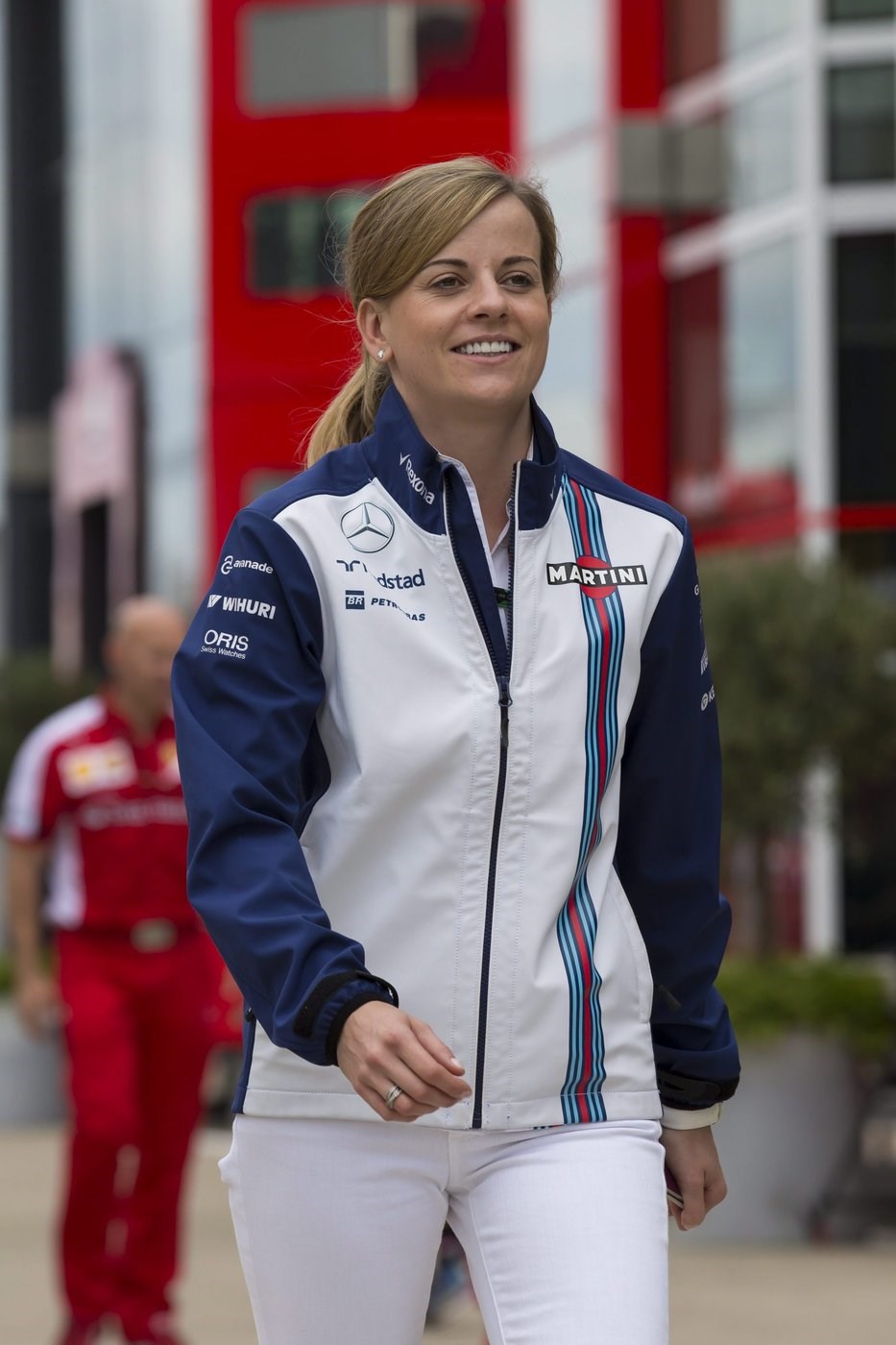MONTREAL — Susie Wolff is the most recent female driver to get behind the wheel of a Formula One car during a Grand Prix weekend.
She wants to make sure she wasn’t the last.
To cap her decorated racing career, Wolff took part in a free practice session four times, making her debut for Williams at the British Grand Prix in 2014 to become the first woman since 1992 to participate in F1.
Since 2023, the 42-year-old from Scotland has worked as the managing director for F1 Academy, an F1-funded series helping young female drivers develop in the sport.
"F1 Academy is a chance of a lifetime to create positive impact in the sport,” she said. “I certainly never thought in my lifetime that I would see an all-female series financed, invested in and supported by F1 and all 10 Formula One teams racing on F1 weekend.”
F1 Academy is considered the top women’s circuit after the W Series disbanded in 2022. Drivers must be aged 16 to 25 and can only compete for two seasons in the single-seater F4 championship.
The series, which recently signed a major partnership with Gatorade as its official sports drink, made its debut at the Canadian GP with two races on Saturday followed by another on Sunday. Gatorade sponsored 16-year-old wild card driver Mathilda Paatz in her debut this weekend.
Canadian GP organizers announced Saturday that F1 Academy would return to Circuit Gilles Villeneuve on Grand Prix weekend through 2028.
"We love it. We're feeling so much love here,” Wolff said. “So much passion from the fans.”
Past F1 Academy winners have graduated to higher levels of motorsport. The goal, eventually, is for more female drivers to rise up to F1.
“That's a long-term ambition. We've got to be realistic in that it's tough to get to Formula One, regardless of your gender,” Wolff said. "We already see more women, in the whole paddock and racing, if it's about when we're going to see women in Formula One, then for sure, it's going to take a bit more time."
In the meantime, F1 Academy offers young female drivers a chance to develop their careers for two years under the F1 umbrella.
“I know that (F1 participation) is not something that will happen overnight, but the truth is, in motorsport, we have an issue with it being quite inaccessible,” Wolff said. “There's a high financial barrier to entry, and I think by breaking down the kind of barriers in terms of showing women what the pathway can be, and then secondly, taking away that financial barrier, we just give these young drivers a much better chance of success.”
Just over a decade since her F1 debut, Wolff said the F1 Academy represents just how much things have changed for women in motorsports.
“It was massively different (in 2014), because I was always the only one, but also the world was different,” she said. “We've seen a lot of positive change, and I think the sport has progressed with that.
“I don't have any bitterness or regret to look back and say, 'God, I would have loved this opportunity.' I would have, but I also feel a certain pride in having made it possible for the next generation."
Wolff never started a race in F1. Only two women have, but not in nearly five decades. Maria Teresa de Filippis raced in three from 1958 to 1959, while Lella Lombardi totalled 17 starts between 1974 and 1976.
Moving forward, Wolff said she has two main objectives for the F1 Academy: growing its audience and inspiring more women to participate in racing.
“Educating people that we exist and that we're entertaining racing to watch, and that then leads to the second (thing) — by existing, we need to inspire more young women to get into the sport,” she said. “We don't have the luxury of there being thousands and thousands of young girls racing. We need more racing so that we can take the very base of the crop and help them excel up the motorsport ladder."
Wolff, who is married to Mercedes executive Toto Wolff, notes that F1's following has shifted, with “42 per cent of the global fan base now female.”
The championship has gained exposure with its “F1: The Academy” docuseries on Netflix, inspired by F1’s highly successful behind-the-scenes “Drive To Survive” show.
“There's just so many more women in the paddock, watching the sport, and now with F1 Academy, competing in the sport,” she said. “That wasn't the case 10 years ago. We've still got a long way to go, but we’ve definitely seen progress."
This report by The Canadian Press was first published June 15, 2025.
Daniel Rainbird, The Canadian Press



